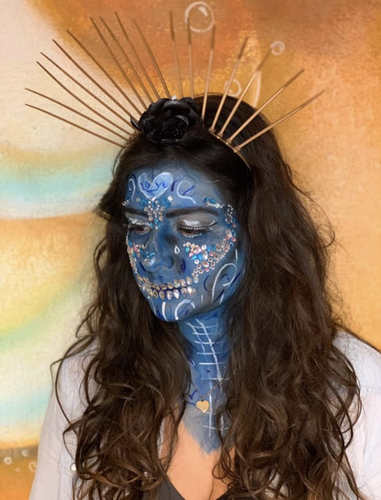
Valeria Branca, born in Rome in 1995, grew up with a passion for that connected and international way of experiencing the world that was gradually developing during the switch from the old to the new millennium. In her hometown, Valeria chose to concretize her natural inclination with a degree in Political Science and International Relations at La Sapienza.
With the first 110 cum laude in her pocket and the project of a diplomatic career well outlined on the horizon, she then joined Alma Mater Studiorum - University of Bologna to take part in the International Cooperation on Human Rights second cycle degree program.
The two-year period at the Bologna University was characterized by a lot of commitment but also by a stimulating student life, further enriched by the experience of international development cooperation made possible by the Field Work program. "I found the Field Work call in September 2018. I remember it well, because I was in Erasmus in Alicante and I was desperately looking for an opportunity that would allow me to write my thesis abroad. One day, at home with a friend of mine, we found the announcement just published on the site and I immediately thought that it could only be a sign of destiny," recalls Valeria. “The call seemed to be created specifically for me, for my needs. In all honesty, I dreamed of being able to write my thesis and get involved somewhere in a developing country. I have always traveled in Europe and the desire to test myself in a different context had already matured in me."
Valeria left for Mexico City on August 4th, 2019, with the plan to work with a local NGO and write her thesis on corruption. The Observatorio Nacional Ciudadano is in fact an NGO that deals with analyzing high-impact crimes, local crimes and the rate of local corruption, with a focus on civil society. This direct experience was decisive for giving substance to Valeria's research. “By working directly with this organization, I was able to compare their work on anti-corruption policies with those implemented by our ANAC (National Anti-Corruption Authority, ed.). My research thesis was a comparison between the measures implemented in Mexico and Italy."
Living a period of study and work abroad is an experience of growth that will always remain part of our cultural DNA, but at the same time it can also present difficulties in adapting to new contexts, characterized by unknown social codes. In this, Valeria feels she has been very lucky with her choice: “Mexico is a wonderful country. The culture is close to the Italian one in many aspects. People are outgoing, kind, and above all they love food. You will never meet a Mexican who ‘no quiere compartir la comida contigo’ (does not want to share the meal with you, ed.)." This is because food, comida, is a symbol of sharing.
"If I had to choose a word to describe the people I dealt with, I would choose 'generosity'. I made a lot of friends and I was also very lucky because two friends of mine met in Spain lived right in Mexico City. Whenever we could travel, we explored. A weekend in particular remains stuck in my memory, during Independence Day, when I was a guest of my friend Eric's family. I started eating at 9 in the morning and stopped after midnight!"
A familiar culture, the Mexican one, which however also has a less positive side. "There is one aspect that troubled me a lot: the machismo. It is incredible how we do not fully understand the society in which we live, until we get out of our little shell and measure ourselves with other realities. In Mexico, the cult of machismo is deeply rooted and I have had countless episodes that have shown me so. I don't feel like going into specific examples, but I would like to say that unfortunately we are still very far from having equal rights between men and women and it can be seen in any working environment. The idea that women should stay home to wash, iron, clean and be a good housewife is rooted in many Mexicans."
The Field Work, however, has not been a purely cultural experience, but above all an opportunity for professional growth. “It doesn't happen every day to be able to work with an NGO that deals with crime reporting. I worked from Monday to Friday, from 9 to 18. A continuous challenge, during which I learned something new every day, from the draft of the reports to the analysis of big data, from the use of specific programs for calculating to social disclosure. The main skill that I think I developed in this experience was undoubtedly problem solving." And to the question, if the Field Work was an experience she would recommend to her fellow students, Valeria replies: "Absolutely yes, I feel I have improved from any point of view. Having never been so close to the world of work, simply being always on time in the office was a goal to reach. In addition, dealing with colleagues with a completely different cultural background is not easy, and being able to manage situations in another language is equally difficult. But I'd do it a thousand more times."
In November 2019, Valeria discussed her thesis cum laude, thus making her research and experience available to the community. The passion for the diplomatic career then led Valeria to continue her education in Rome, with a II level Master in International Public Affairs at the Luiss Business School.
"A heartfelt thanks goes to the University of Bologna, which gave me this opportunity and which has always supported and helped me throughout the journey. Now I look to the future even more convinced of my aspirations and I want to turn them into reality as soon as possible, becoming a professional diplomate."
Good luck, Valeria!